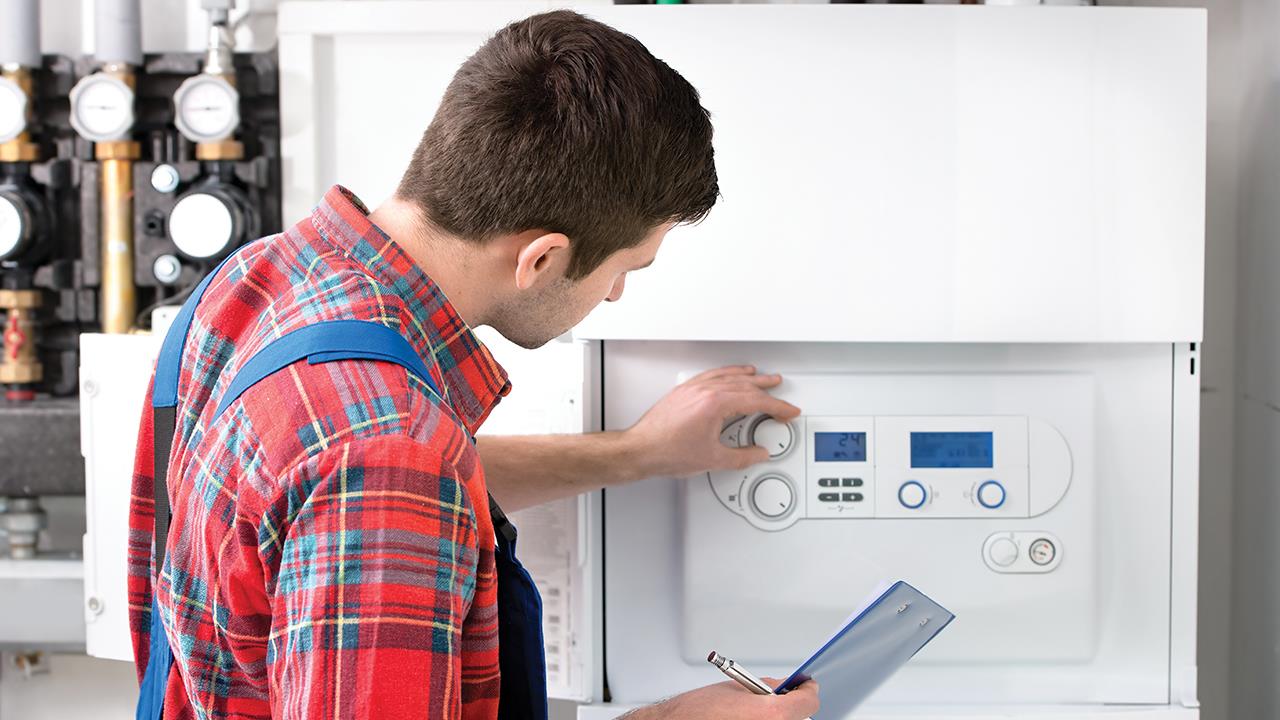

Over the course of the pandemic, boiler servicing became even more of an afterthought than it normally is for many homeowners. This is despite heating installers being able to remain active as ‘essential workers’ and undertake preventative maintenance tasks, such as servicing.
Such neglect of an essential practice increases the risk of boiler failure and inhibits performance. With the ongoing hike in fuel prices, the issue has become even more pressing.
The HHIC and its members, including UK boiler manufacturers, are constantly trying to raise consumer awareness of the need for boiler/system servicing, to ensure heating systems are kept in tip-top condition.
Servicing and advising
Servicing is not solely beneficial for avoiding breakdowns. Regular maintenance also helps ensure that a boiler is kept at maximum efficiency during operation. This can lead to lower energy bills, and optimum performance and comfort for the homeowner.
As part of the service, installers are ideally placed to advise on possible measures to enhance efficiency and reduce energy demand where possible. It is an opportunity they should grasp whenever possible.
When checking and adjusting control settings in line with customer requirements, such advice might include turning down TRV settings in spare rooms, or the main thermostat by a degree or two.
Households can also be advised on useful control upgrades, such as zoned heating through smart technology, or the installation of weather and/or load compensating controls.
Optimal performance – by ensuring safe and efficient combustion – can also reduce emissions of carbon dioxide and other greenhouse gases.
A matter of time
Regularity and timing of service are other important factors that installer should explain to homeowners. Boiler servicing is an annual requirement (e.g. for the provision of any extended appliance warranty) and, for landlords, a legal requirement when providing such appliances to tenants.
When it comes to timing, summer can often prove to be the best period to undertake a service. As boilers are typically used less in the warmer months, any required downtime will be easier to manage.
In comparison, winter is a time where call-outs tend to increase, which places further pressure on heating engineers and their availability.
Quality assurance
Homeowners should always prioritise safety and quality when booking a gas boiler service, which can only happen if they are well-informed.
With this in mind, the HHIC has produced a guidance document for consumers, the HHIC consumer guide to gas boiler servicing. It aims to help homeowners understand the need to use a Gas Safe-registered engineer, and why the cheapest quote isn’t necessarily the best. The guidance also grants installers a means to convey professionalism and commitment to gas safety and consumer protection.
Building on this, engineers should ensure they apply best practice when servicing. It is always advisable to refer to the appropriate installation and service manuals for the applicable type and model of boiler.
Servicing in accordance to the manufacturer’s requirements enables preventative maintenance, and may help to identify worn components that need replacing.
Doing so can potentially prevent unexpected boiler failure, which would otherwise cause increased repair costs and the potential inconvenience of an inoperable appliance.
Looking to the future
In this, ideally constant, discussion between installer and householder, it is equally important to consider the future.
It is clear that boilers today bear little comparison to those 30 years ago, with modern appliances reaching up to 94% ErP efficiency and coming room-sealed with an array of in-built electronics.
The current and future injection of low or zero carbon gasses into the grid mean there is no sign of technological advances slowing any time soon.
It must be realised that successfully navigating these required changes will also rely on boilers being annually serviced. And, as heating appliances become increasingly advanced, qualified installers will need to be well-versed in comprehensive boiler servicing routines.
With all those points considered, the HHIC and its members aim to play their part in ensuring Gas Safe-registered engineers and their customers are supported with best practice guidance. As a result, gas boiler servicing in the UK can be the more transparent, quality-assured, and sought-after process it should be.
If you'd like to keep up-to-date with the latest developments in the heating and plumbing industry, why not subscribe to our weekly newsletters? Just click the button below and you can ensure all the latest industry news and new product information lands in your inbox every week.